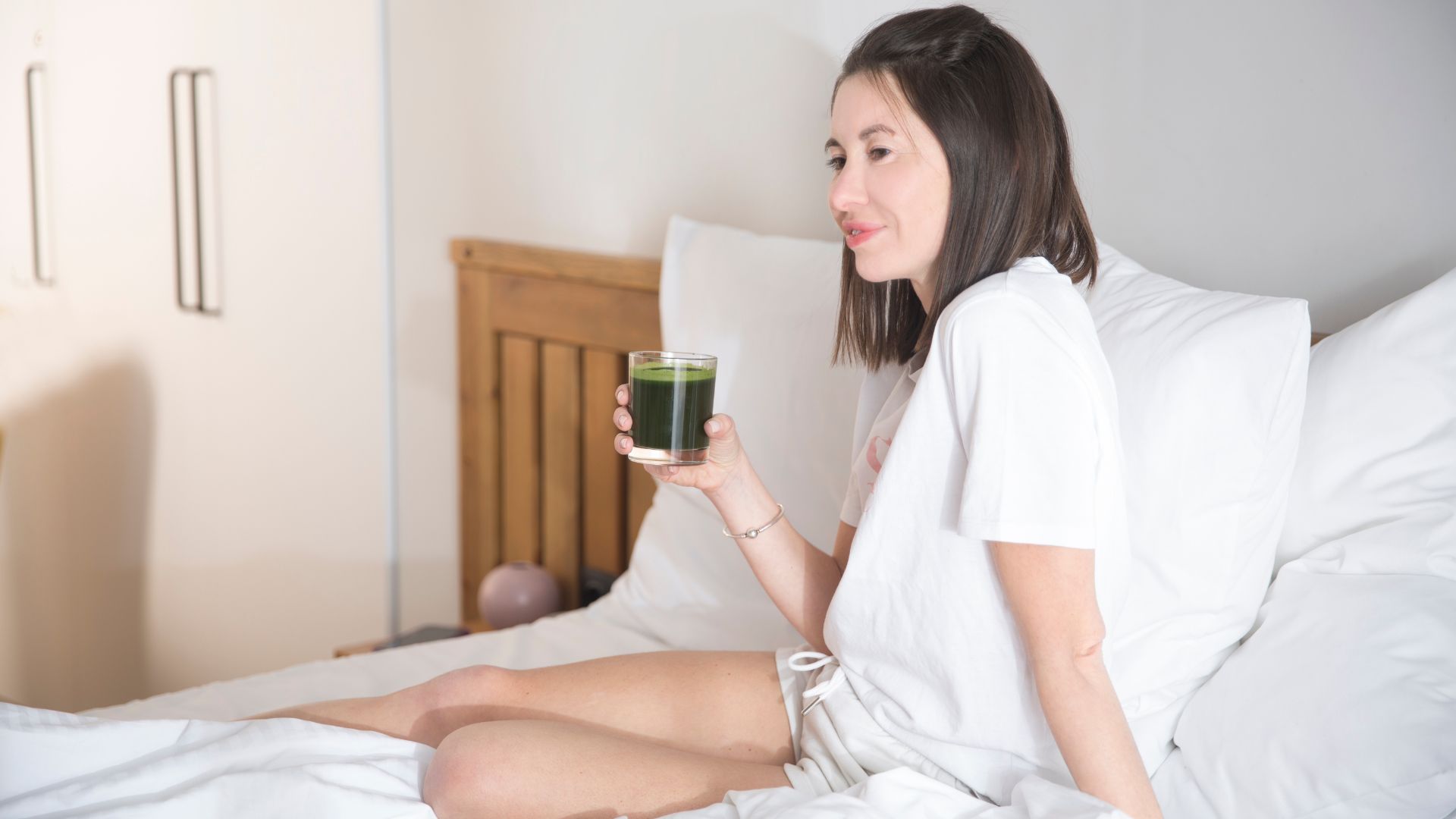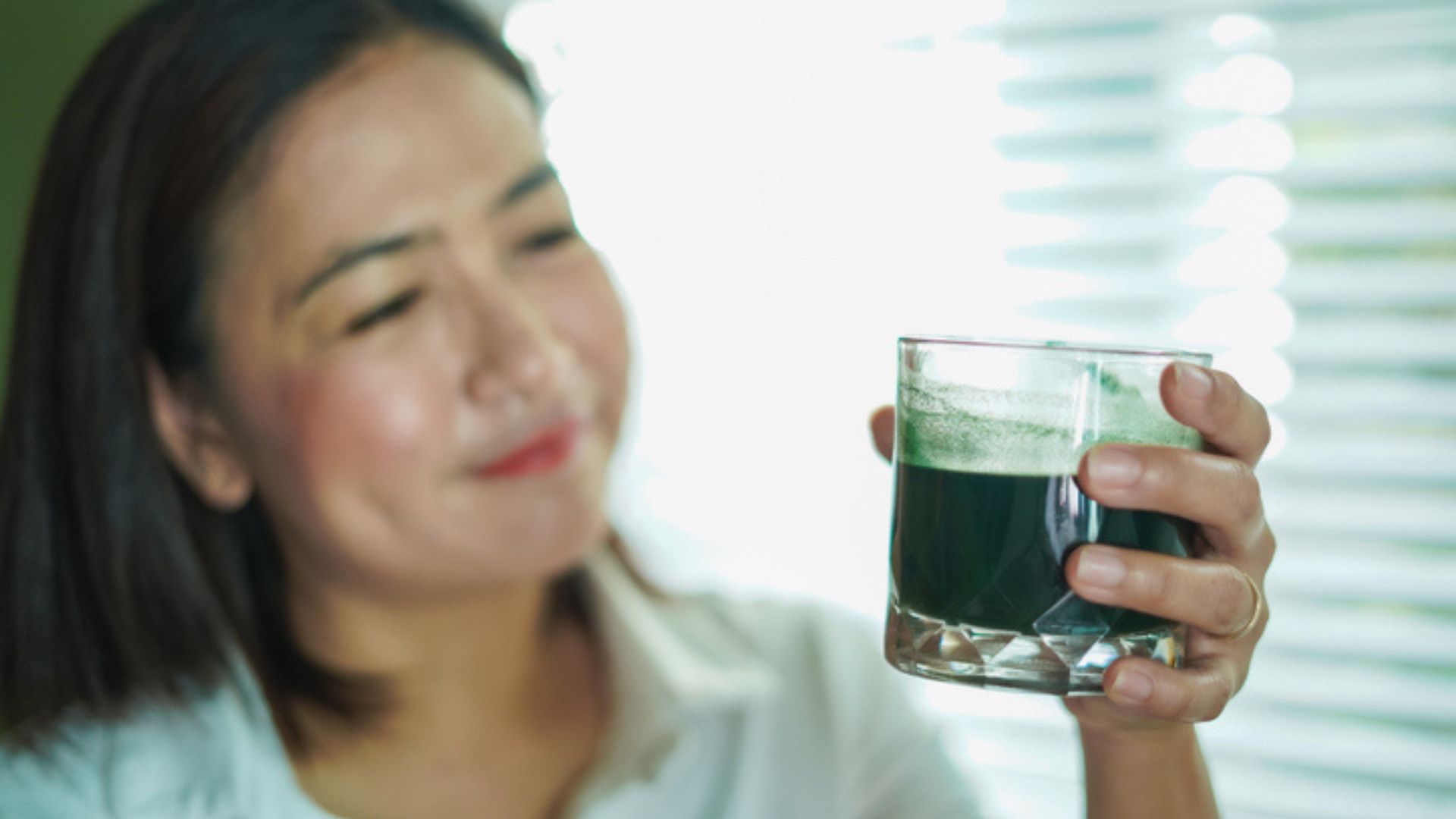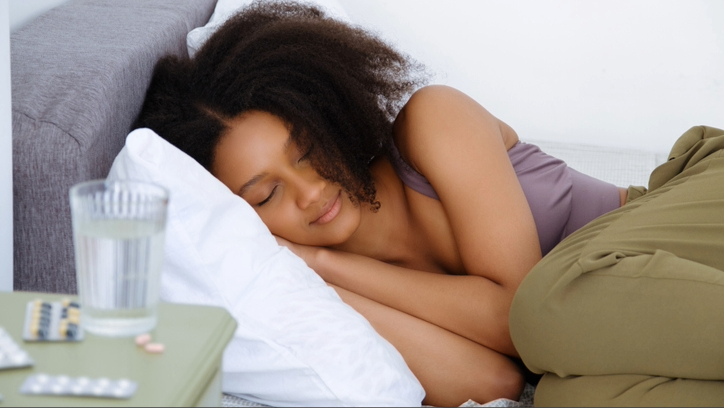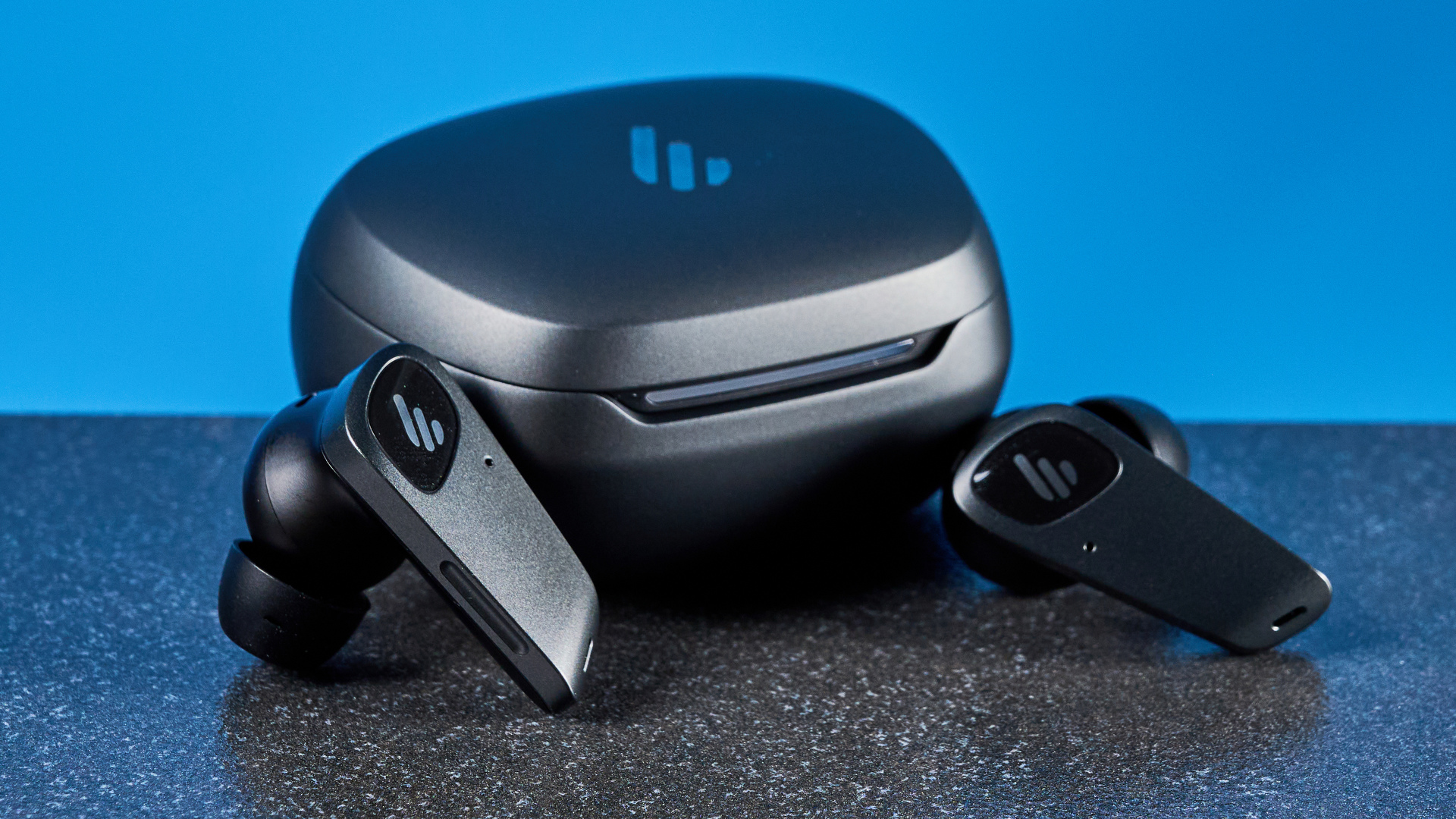Fall asleep faster and wake up happier with this underrated sleep supplement, says new study
Spirulina might be the secret recipe to falling asleep fast, sleeping through the night and waking up happier

Magnesium has long reigned the kingdom of sleep supplements. But Spirulina should be getting more attention, according to a new study.
More and more researchers are delving into how daytime habits affect sleep quality, with diet being a key player in your sleep architecture.
The new research published in the journal Food Science & Nutrition shows this blue-green algae (it's nicer than it sounds when blended into a smoothie) can both supercharge sleep and boost mental wellbeing.
"Spirulina helps you sleep better due to the concoction of nutrients"
Spirulina sports the trendy 'superfood' label thanks to its rich nutrient profile. It is packed with protein, vitamins, minerals and antioxidants, and is commonly used for improved cholesterol, reduced blood pressure and anti-inflammatory effects.
And the new study adds a string to its bow — positive sleep and mental health outcomes. Here's how this mighty supplement can improve your ZZZs and keep your mind healthy...
Key findings from the study:
- Spirulina supplementation improved sleep quality and latency
- Supplementing 2 grams of Spirulina daily for 8 weeks can enhance sleep and mental health
- Study participants improved sleep quality by 29% with Spirulina
The study involved 66 participants with mild to moderate depression who were randomly assigned to receive either 2 grams of Spirulina or a placebo for 8 weeks.
Assessments were conducted at baseline, week 4 and week 8 including health metrics, the Depression Anxiety Stress Scales (DASS) and the Pittsburgh Sleep Quality Index (PSQI), where lower scores reflect better sleep and mental health.
Sign up to get the BEST of Tom's Guide direct to your inbox.
Get instant access to breaking news, the hottest reviews, great deals and helpful tips.
According to PSQI ratings, participants who received 2 grams of Spirulina daily for 8 weeks experienced a significant improvement in sleep quality. The Spirulina group's PSQI scores decreased from an average of 7.03 at baseline to 4.97 at the end of the trial. In contrast, the control group's scores changed from 8.07 to 6.73 over the same period.
Additionally, the study exhibited a consistent reduction in DASS scores. They decreased from an average of 19.27 at baseline to 11.58 at week 8 among the Spirulina group.
Meanwhile, the control group dropped from an average 15.43 to 12.63, showing the difference between the groups was statistically significant.
Considering poor mental health can sabotage your rest and vice versa, these results are good news for sleep.
How Spirulina improves sleep quality
Spirulina helps you sleep better due to the concoction of nutrients it carries. There's B vitamins that are essential for the production of sleep hormones, iron which is crucial for avoiding insomnia, and magnesium which aids sleep by calming the nervous system and relaxing muscles.

But it's sleep-enhancing benefits mainly come from its rich content of tryptophan, an amino acid that must be obtained through your diet to help the body produce serotonin and melatonin. These hormones are crucial for regulating sleep and mood.
Gym-bros will also be glad to hear this supplement packs protein. Harvard Medical School predicts Spirulina is 60% plant-based protein, and this is great for your kip as well as your muscle gains.
Science suggests increasing your protein intake can up your sleep by 18 minutes per night.
Happy mind, dreamy sleep
Mental health and sleep go hand in hand, with poor mental health leading to poor sleep and vice versa. Racing thoughts associated with anxiety can make it hard to fall asleep, while depression can cause both insomnia and hypersomnia (leading to sleep inertia where you feel extremely groggy come morning).
What's more, stress can cause sleep paralysis. But the antioxidants present in Spirulina contribute to stress reduction and overall brain health, further supporting sleep.
With Spirulina reducing depressive and stress symptoms, it can ease this host of sleep troubles. Sleepers are less likely to experience sleep inertia or morning grogginess and more likely to get quality, restorative sleep.
Other supplements that help you sleep
Besides Spirulina, there are several other recognisable and under-the-radar sleep supplements proven to help you fall asleep and sleep deeper through the night. Below are some of the most popular, however always consult a healthcare professional before incorporating a new supplement into your diet.

Magnesium
Magnesium is perhaps the top-dog sleep supplement. It is certainly the one most discussed in science and health advice. Much research agrees that it can calm the nervous system and support sleep hormone production.
Magnesium interacts with neurotransmitters like GABA, helping to slow down nerve activity and promote relaxation, leading to restful, restorative deep sleep.
Regulating sleep-wake cycles, magnesium helps you fall asleep faster, stay asleep longer and improve overall sleep quality, ensuring you move through all the essential sleep stages undisturbed.
Melatonin
Melatonin is a hormone that makes you feel sleepy. As part of your circadian rhythm, your brain naturally produces melatonin in response to darkness.
For most people, their body produces enough melatonin to send them to sleep in a dark, comfortable sleep environment.
However, if you're struggling to sleep, supplementing your body's natural production of this hormone will help.
A study presented by researchers from Tehran University of Medical Sciences shows a positive correlation between melatonin supplementation and sleep quality scores among adults assessed by the PSQI.
Valerian
Valerian is a herbal sleep aid. It is commonly used for relaxation and to treat sleep disorders including insomnia. People who are cautious of prescription medication tend to prefer supplementing valerian.
Science suggest it helps you fall asleep fast and bag better quality slumber through the night.
One study by Californian scientists showed patients taking valerian supplements had an 80% greater chance of reporting improved sleep compared with patients taking placebo.

Eve is a PPA-accredited journalist with an MA in Magazine Journalism from Cardiff University. She is a Sleep Staff Writer at Tom’s Guide and has four years’ experience writing health features and news. She is particularly interested in the relationship between good sleep and overall health. At Tom’s Guide Eve is responsible for coverage and reviews of sleep tech and is our smart and cooling mattress specialist, focussing on brands such as Eight Sleep and Sleep Number. She also covers general mattress reviews, seeks out the best deals to produce tried-and-tested buyer's guides for sleep accessories and enjoys writing in-depth features about sleep health. She has been involved in rigorous testing procedures for mattress reviews in our Sleep Studio and has interviewed experts including sleep doctors and psychologists. When not covering sleep at Tom's Guide, Eve enjoys writing about health and fitness, food and culture.
You must confirm your public display name before commenting
Please logout and then login again, you will then be prompted to enter your display name.
